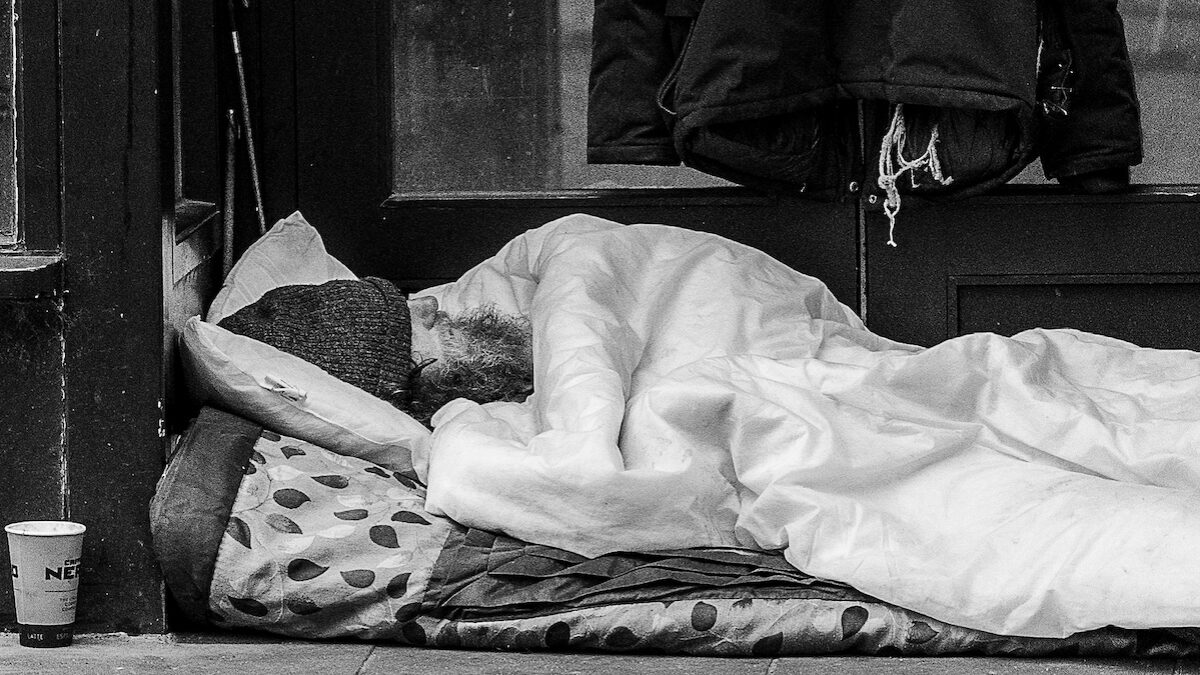Nobel laureate Paul Krugman says “the anxiety driving MAGA isn’t driven by reality” but “dystopian visions unrelated to real experience.” As proof, he points to Kristi Noem, the Republican governor of South Dakota, “a MAGA hard-liner” (who isn’t, right?) who warns that President Biden is “remaking America,” turning us into Europe.
It takes quite a bit of audacity for Krugman, the man who warned us Mitt Romney was going to be “worse than Herbert Hoover” and that Donald Trump would bring about a “global recession” with “no end in sight,” to gripe about partisan hyperbole. But I wrongly assumed the column was going to be critical of Noem for misrepresenting Biden’s intentions. Not at all. Krugman says Europe is an ideal, not, as Republicans would have you believe, “a scene of havoc wrought by hordes of immigrants.”
Krugman tells us he has “spent a fair bit of time walking around various European cities last year.” Did any of these strolls take him through one of Paris’s banlieues, where unassimilated Muslim immigrants live in crime-ridden generational poverty? Did he hang with any of the 300,000 pro-Hamas marchers in London recently? Probably not.
While most Europeans don’t live among “hordes of immigrants,” they also don’t live in beautiful city centers where American tourists are feted. Krugman once fantasized about making Euro-skeptical Americans go on “forced walking tours of Stockholm.” (Compelling people to do things is kind of a theme with him.) While I’m sure a tour would be nice, at around $820 per square foot, Stockholm, still not the most expensive city in Europe, is a bit pricey.
The average home size in Sweden is 893 square feet. In the United States, it’s 1,944 square feet. The median home price per square foot, even after a spike, is $214. Most Americans live in homes the average Swede would probably consider a mansion, with generous backyards and maybe a nice Ford F-150 out front — away from cities. That’s what really bugs Krugman: the freedom to do what you like.
Sweden, like other Nordic nations, benefitted from adopting American-style free market ideas in the 1990s. But Noem was speaking specifically about immigration in Europe. “We will be Europe if we allow this invasion of the country to continue,” is what she said on Fox News. And Sweden, like so many other European nations, has a huge immigration problem.
After opening its borders to massive numbers of Middle Eastern refugees, Sweden was forced to close shop after experiencing a spike in riots, gang violence, and sexual crimes. One study found that nearly half of sexual offenders in Swedish jails were foreign-born. Not long ago the head of Sweden’s largest party admitted that her country failed to assimilate immigrants, creating “parallel societies.” Maybe Krugman should take that walking tour in a segregated city like Malmo, where Jews live in fear.
Europhiles like to take what’s best in Europe and compare it with what’s worst in the United States. The first thing, for instance, that came to Krugman’s mind after Noem’s comment was that Europeans enjoy five or six years longer life expectancy. Health-care outcomes have far more to do with our cultural choices (lots of driving and more vehicular deaths, for instance) than the alleged superiority of the socialist delivery services Krugman favors.
My first thought when thinking about Europe—after the rampant antisemitism, the ongoing land war, the childlessness, the riots, the death of Christianity, and the rise in Islamic radicalism—is that it has a highly overregulated economy; it’s nearly impossible to start a new business; and the average French or British household income is lower than that of an average Mississippian or West Virginian or South Dakotan.
The eurozone grew 0.5 percent last year, while the United States grew 2.5 percent. Not that we should brag too much, considering how much headspace our economy had post-lockdowns. Krugman, nevertheless, somehow segues from how awesome Europe is to how our economy is also “booming,” “very good,” and “almost miraculously good.” Anyone who disagrees with him is “detached from reality.”
You have every right to be a bit skeptical about Krugman’s coloring of your grocery shopping experience, and not only because he is preternaturally wrong all the time about basically everything. It’s that he’s dishonest. Only recently, Krugman claimed the “war on inflation” was over, and “at very little cost,” by posting a chart showing the Consumer Price Index dropping from 7 percent to less than 2 percent — excluding food, shelter, energy, and used cars, or basically all the stuff you need to live.
Now, it is surely the case that cultural, ideological, and political outlooks can distort a person’s view of reality. There is probably no better example of this phenomenon than a Paul Krugman column.









